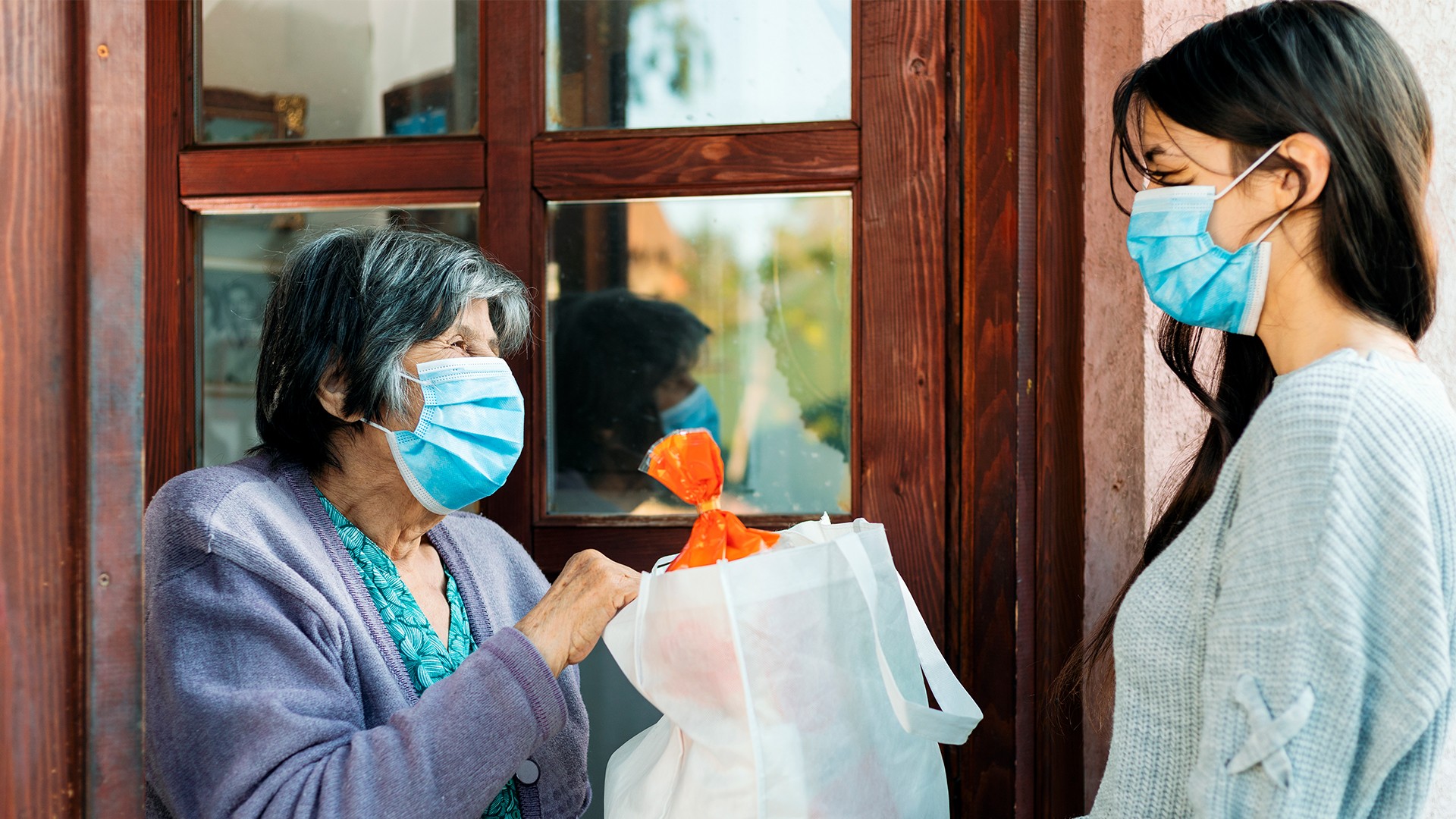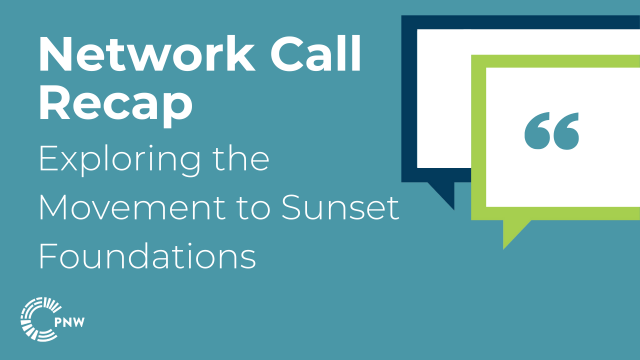
In March, an unprecedented pandemic raged through Oregon. Two months later in May, Portland became a cultural hotspot making national headlines for its racial injustice protests as the Black Lives Matter movement gained momentum across the country. In September, the fiercest fires in the state’s history ripped through Oregon’s landscape, literally burning several towns to the ground.
“It’s a magnitude of need like we’ve never seen,” said Stephanie Swanson, vice president of communications for Oregon Community Foundation (OCF). “The cumulative impacts of this range of crises are showing us how deep and wide disparities are, and how much we need to double down to invest in vulnerable populations.”
Already in 2020, OCF has given more than $30 million in grants to more than 1,000 nonprofits across the state — a total amount 128% higher than all of 2019. The first of those funds, the Oregon Community Recovery Fund, started out addressing basic services like food security and shelter, in addition to a small-business stabilization fund and an arts and culture relief fund.
“Midway through development of that fund, because we work so closely with communities, we began to recognize how COVID was hitting people of color harder and deeper,” said Stephanie. “We began to deploy more resources to BIPOC organizations and populations, based on the approach that the dollars should be equally disproportionate to help those communities that were more dramatically impacted.”
Then in May, when racial justice protests began in Oregon, OCF was prepared to look at where grant dollars could go to culturally and population-specific organizations, and worked with advisory committees to reach the smaller, more grassroots organizations on the front lines.
When the fires started hitting, OCF served as a compass to get dollars quickly to the first responders who needed them most, like branches of United Ways and The American Red Cross. Now, OCF has been invited by Oregon’s governor to partner on two of the largest funds just launched, aimed at a longer rebuilding timeline.
“It’s really important that we reserve funds for what comes next — when the media goes away, public interest wanes, we need dollars to reinvest in schools, rebuild homes, treat mental trauma,” said Stephanie. “It will be about planning how we rebuild for resilience, how we work with communities to intentionally design an inclusive Oregon where we all want to live.”
Conversely, when COVID-19 hit, Hawai'i Community Foundation (HCF) had already experienced a significant series of four disasters in two years: lava flows on the big island, two massive rain/mudslide events on Kauai and wildfires in Maui. As a result, HCF had developed a three-tiered response framework of relief, recovery and resilience. It had also put in place pre-negotiated funds for each county to trigger in an emergency to move dollars into their communities.
When Hawai'i shut down in March, HCF was well-prepared to spring into action. To address the urgent health concern of this particular disaster, it added a new tier, risk reduction, to the front of its response framework as Phase 1. And, in addition to rapid relief, it focused some giving to a unique sector: data collection. HCF distributed grants to:
- The organizations operating the Oahu Homeless Management Information System (HMIS), which helped with mapping homeless populations that might be at risk from massive COVID-19 outbreaks;
- The Hawai'i Data Collaborative, which tracks the disbursement of Honolulu County funds through the Small Business Relief and Recovery Fund on a weekly basis; and
- The University of Hawai'i Economic Research Organization that’s helping to bring forward valuable data to help to re-open the state’s economy.
“This was the first time we’d dealt with a state-wide disaster, versus one island or one part of the state,” said Thomas Kelly, vice president for evaluation and impact for HCF. “There was a feeling of not being sure where to pivot in the early days, which is why data became so important. It helped us prioritize where could we target what others wouldn’t think of, like PPE for homeless shelters or domestic abuse shelters as part of Phase 1 of risk reduction.”
Thomas noted the absence of good COVID-19 data by race until about six weeks ago. “Once we had the data, we saw that Native Hawaiians are doing well, but other Pacific Islanders aren’t. It’s troubling in that we didn’t know that, but the fact that we didn’t know until four months into this crisis is a broader problem.”
The Community Foundation of Snohomish County (CFSC), that serves a broad geographic range of communities north of Seattle — which had become an early hot spot for the virus — also sprang into action quickly. It gave out grants within a week of administering its first COVID-19 fund. By the second week, CFSC saw that communities of color were largely left out of that first round of rapid relief grants. The foundation connected with Snohomish County’s census coalition to make connections in the communities in need of funding and expanded its grantmaking with a second round of grants from federal CARES dollars for Snohomish County.
Recognizing that they themselves were mostly white-women led, they realized that they needed guidance from someone with deep and trusted ties in the BIPOC community who could help them. Through their relationship with the county’s census coalition, CFSC found the help they needed: a long-time volunteer with trusted relationships in the local Black community.
“We didn’t want to keep asking her to volunteer her time, so when we found out about the CARES granting, we hired her to coach and consult,” said Karri Matau, president and CEO of CFSC. “And because both the county and us wanted the funding to be focused on BIPOC-led and serving organizations, we knew we needed help with everything from our marketing, outreach, processes, decision making and evaluation. She [the consultant] advises on every step of the process.”
“We realized a while ago that doing race equity and social justice work is not just an initiative, it’s a total and complete new way of doing the work,” Karri continues. “If we have the word ‘community’ in our name, we better be doing to work to include our entire community, to break down systemic barriers, to address racism and white supremacy culture so that everyone benefits and everyone thrives.”


